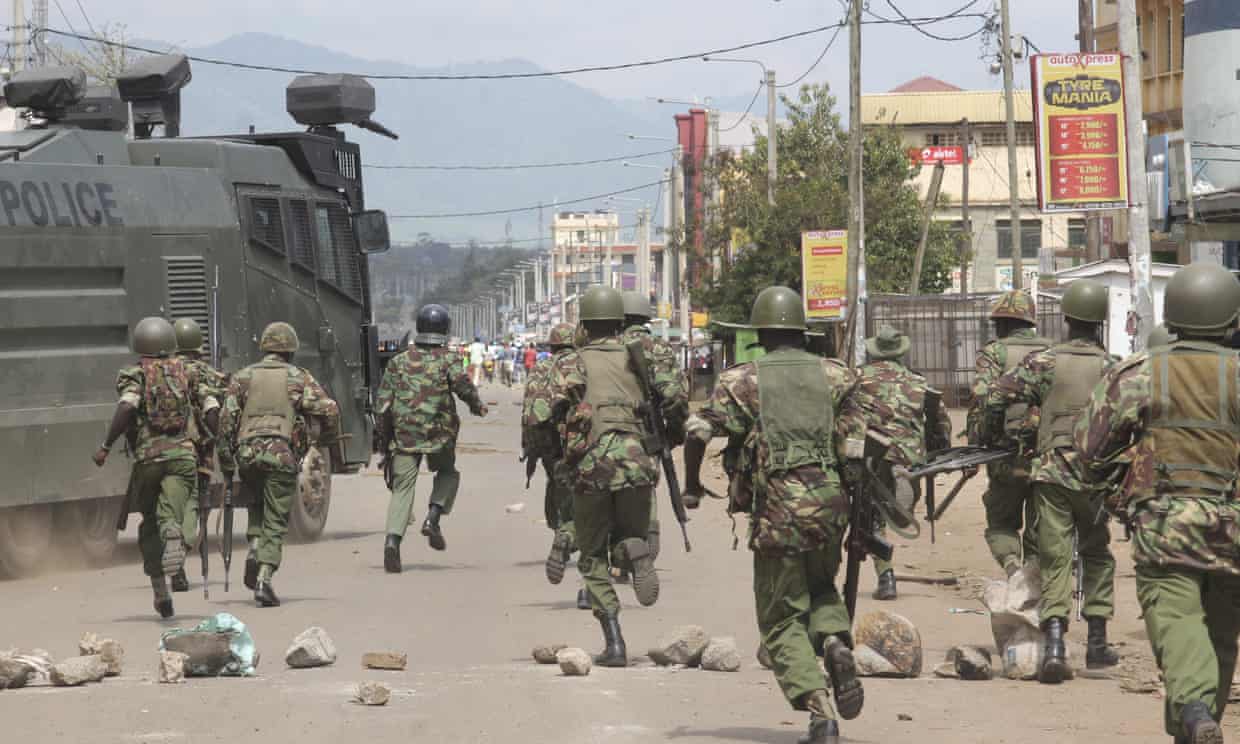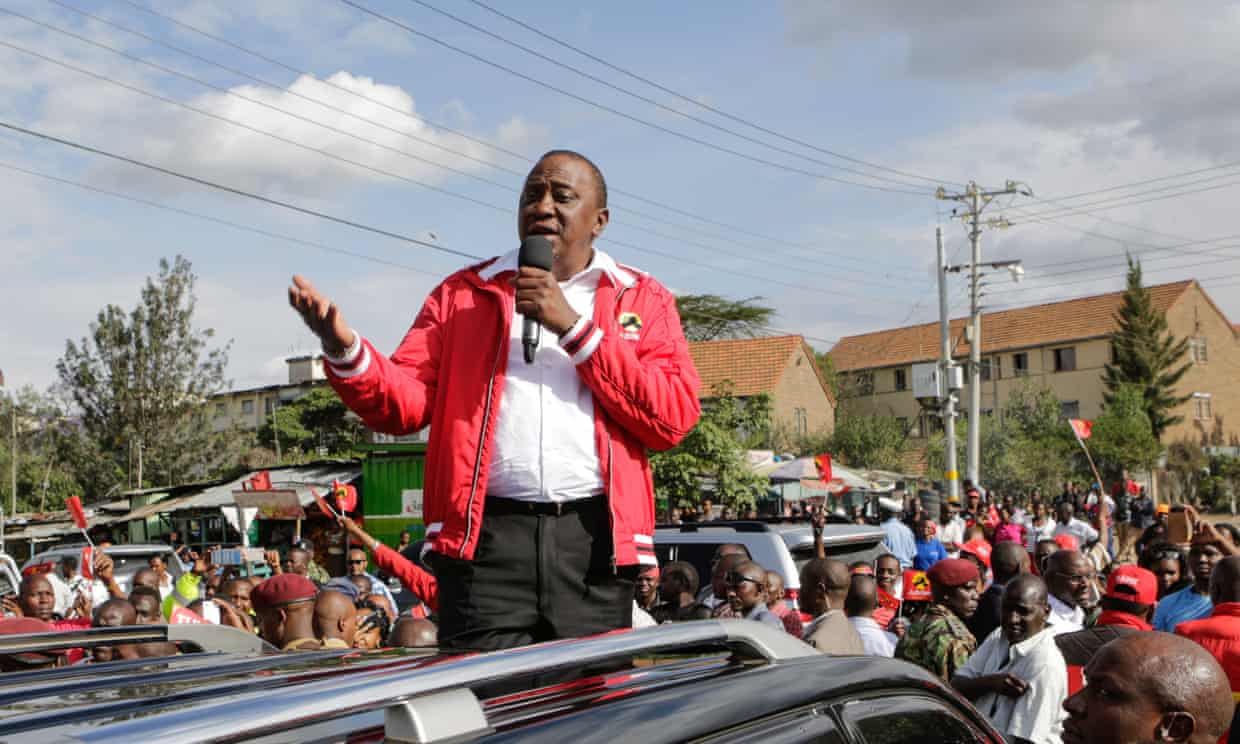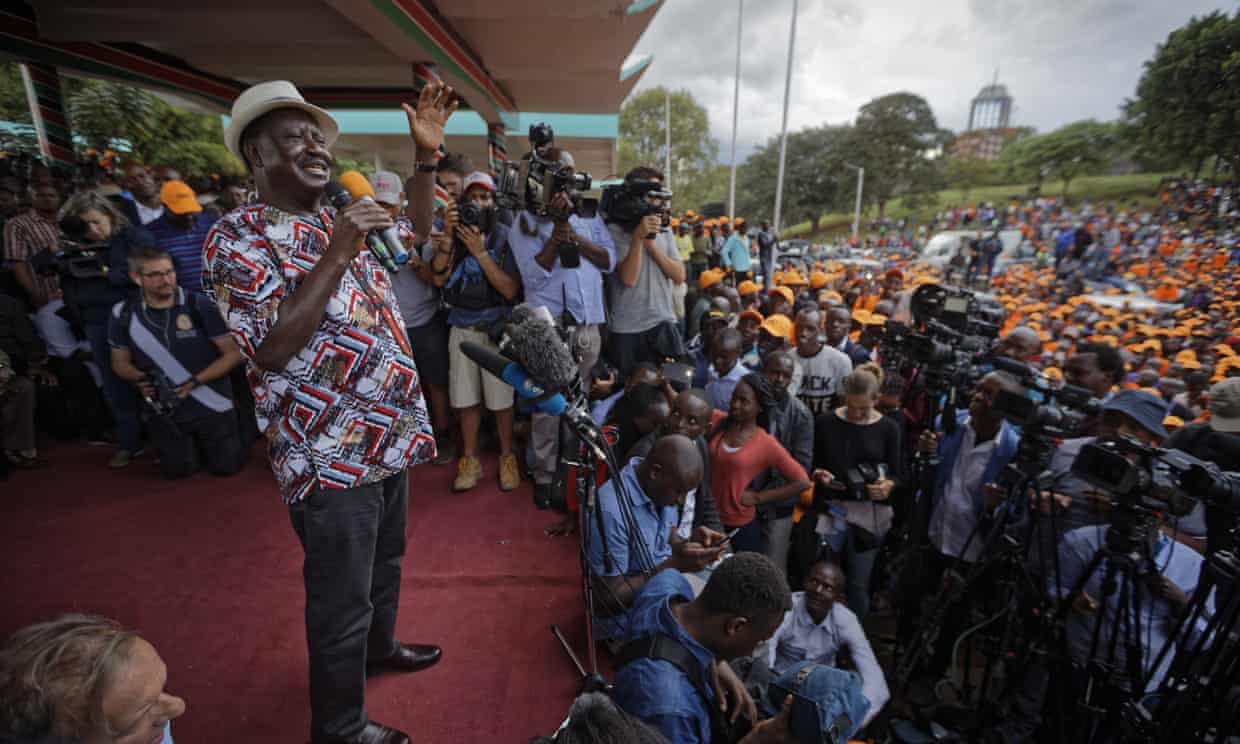The leader of Kenya’s main opposition party has called for a campaign of civil disobedience and resistance on the eve of a controversial rerun presidential poll.
Raila Odinga told a crowd of several thousand supporters in the centre of Nairobi that the polls scheduled for Thursday were a “sham” and amounted to a “coup d’etat” by Uhuru Kenyatta, the incumbent president, and told them not to vote.
“Tomorrow we begin the new battle for electoral justice … We must rise to the occasion and save democracy not only for ourselves but for all Africa,” the 72-year-old political veteran said.
There will be relief that Odinga did not call for protests, which could have led to widespread violence, instead telling supporters to “hold vigils and prayers away from polling stations, or just stay at home”.
Thursday’s disputed election was called after the supreme court annulled an election held in August owing to procedural irregularities. The August presidential poll was won by Kenyatta, by a margin of 9 percentage points.
Odinga urged supporters on Wednesday to respect those who wanted to vote in the rerun.
“Do not look at your [neighbour] with suspicion … He or she is as much of a victim as you,” said Odinga, who has lost four times in elections.
In a televised speech on Wednesday evening, Kenyatta described the rerun as Kenya’s “greatest democratic test”.
“Tomorrow we head to the polls. Tomorrow we ask God for his guidance … and to grant each and everyone of us wisdom and peace in these testing times. We have another opportunity to show the world that we are a modern state striving for shared progress and shared prosperity. We have a unique opportunity to solidify the foundations of Kenya … and emerge, stronger, more confident and more united as a people.”
Kenyatta added a warning, however. “Let no one infringe on his brother or sister’s right [to vote] .... Our security agencies have been deployed across the country to ensure the safety of each and every Kenyan,” he said.
Earlier on Wednesday Kenya’s supreme court could not consider a petition to postpone the highly contentious vote because not enough justices were available to form a quorum.
David Maraga, the chief justice, said one judge was unwell, another was abroad and unable to return in time and a third was unable to come to court after her bodyguard was shot and injured on Tuesday night by unidentified gunmen.
That attack has been viewed by some commentators as an attempt to intimidate the judiciary. The last-minute petition, filed by three voters, including a human rights activist, argued that officials could not ensure the polls were free, fair and credible.
Protesters in Kisumu, a western city which is an opposition stronghold, blocked roads with boulders, sticks, and burning tyres after news of the supreme court statement was broadcast.

Opposition leaders and supporters have said they do not believe the rerun will be fair, as none of the electoral reforms they requested have been implemented.
“The same system that bungled the August election will bungle this election … We can’t participate in elections and every time our leader is unfairly defeated,” said David Jesso, a 22-year-old law student among the crowds in Nairobi’s Uhuru Park to hear Odinga speak.
Senior members of the Electoral Commission have expressed deep concerns about the forthcoming polls. One went on leave last week and another fled to the US citing threats to her personal security.
Some experts have been calling for a short delay to allow tensions to ease and essential preparations to be completed.
Adding to the uncertainty on Wednesday was a high court ruling that invalidated the appointments of constituency electoral agents for the vote. It is likely the ruling will provide the basis for at least one of many expected legal challenges to the poll.
Many in Nairobi remained nervous, with long queues at supermarkets as locals stocked up on essentials.
The European Union has reduced its team of election observers for the election, citing “the extreme tension, disruptions of polling preparations, and strong criticism that has been made of the international community”.
Odinga’s claims of vote-rigging after his defeat in 2007 elections prompted rioting and retaliation by security forces, which tipped the country into its worst crisis for decades. About 1,200 people were killed in the ethnic violence that followed.
Many Kenyans say that the potential for violence is reduced now because the country has learned from its earlier traumatic experiences; though 37 people were killed in protests after the August poll, widespread clashes have been avoided.
There have been near-daily opposition protests against both the Electoral Commission and the draft electoral law, which the president has yet to sign.
Rising prices, unemployment and allegations of graft have also fuelled discontent.
The crisis has aggravated ethnic divides within Kenya that many believed were declining in importance.

Odinga is Luo and has succeeded in attracting support from a range of minorities, while Kenyatta, who has been in power since 2013, is Kikuyu, the most dominant community.
Nic Cheeseman, a professor of African politics at Birmingham University, said a range of broader grievances were focused on the country’s most prominent leaders.
“Odinga is a personification of one community’s frustration and sense of marginalisation, while Kenyatta is seen as the personification of another supposedly privileged community. So it is this broader identification which means the elections can be so explosive,” he said.






